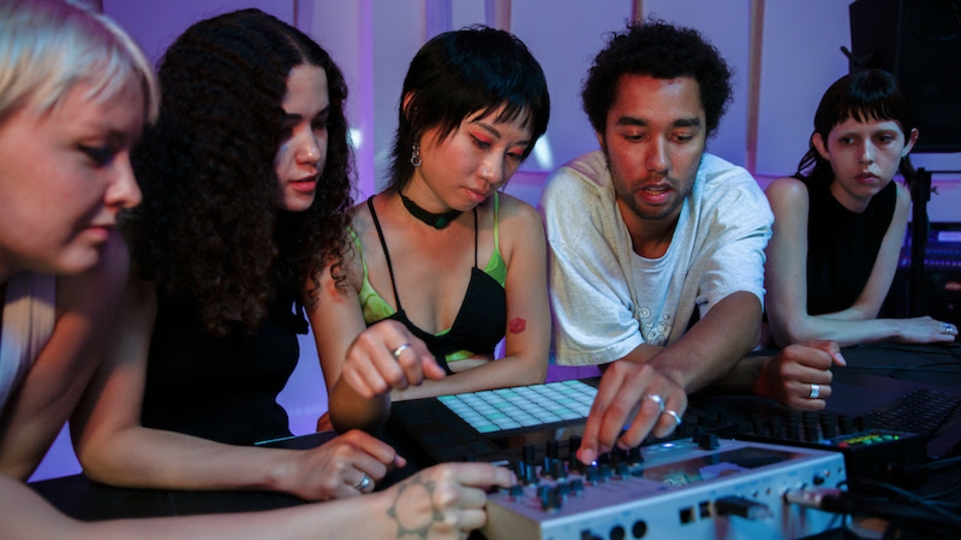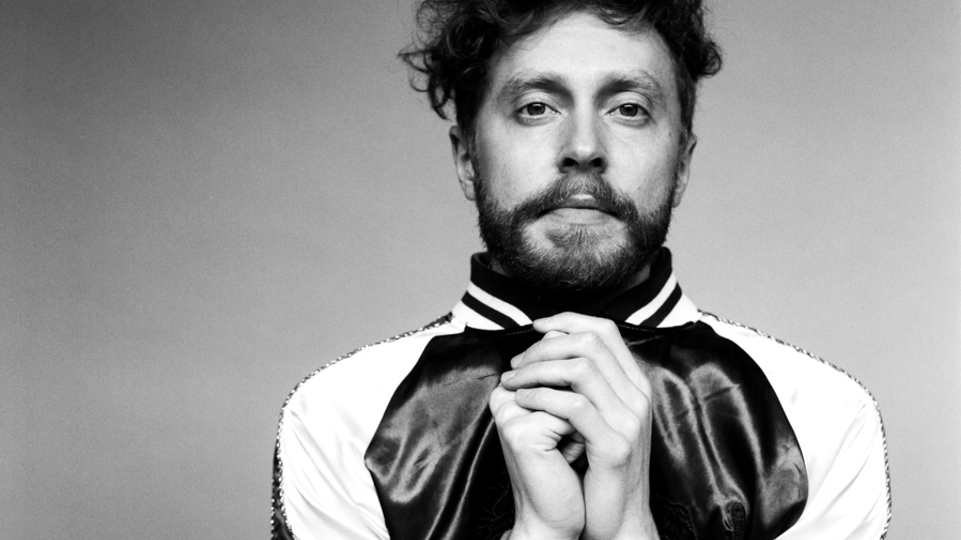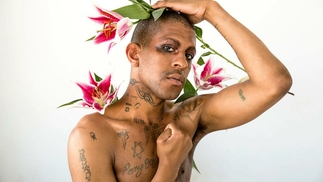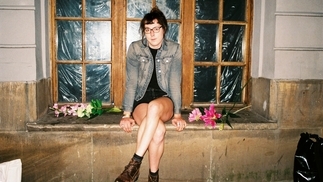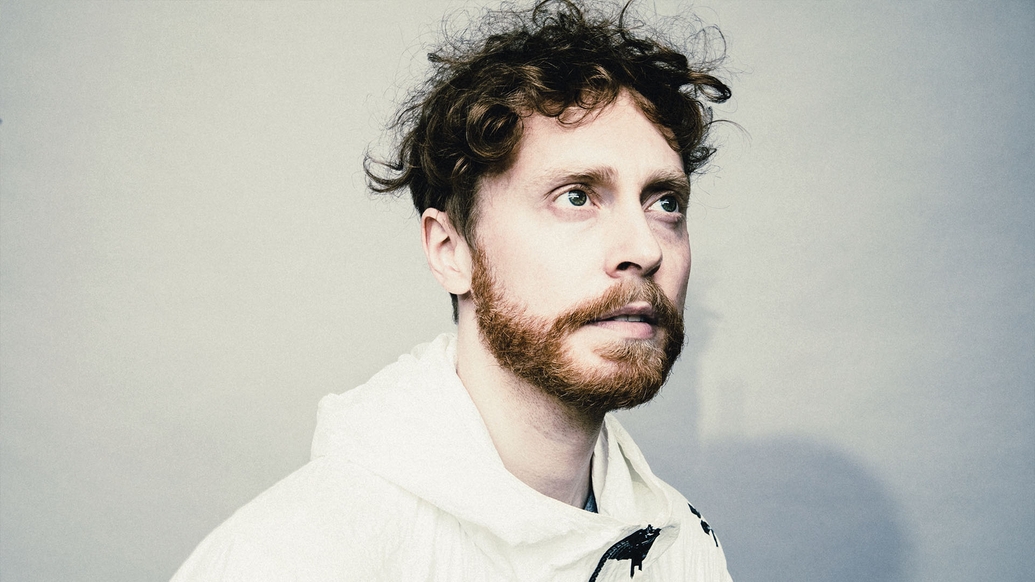
FaltyDL: honest appraisal
Reappraising his relationship with club music, Drew Lustman, better known as FaltyDL, has switched gears to produce the most heartfelt release of his career, ‘A Nurse To My Patience’. The album’s shimmering textures and emotive vocals see the producer taking time out from the dancefloor in favour of introspective explorations, and Lustman speaks to DJ Mag to give the reasons behind the transformation
Drew Lustman’s sound has always been a bit difficult to pin down. Working as FaltyDL, his earliest efforts, like the 2007 album ‘Beat Lumber’, are exercises in revved-up near-abstraction, with nods to the likes of Squarepusher and Aphex Twin. On his 2009 release for the Planet Mu label, ‘Love Is A Liability,’ he seemed to join forces with the post-dubstep sound of the time; 2011’s ‘You Stand Uncertain’, also on Planet Mu, is his woozily careening take on music for the dancefloor. A pair of Ninja Tune releases, 2012’s ‘Hardcourage’ and 2014’s ‘In The Wild,’ saw Lustman diving a bit deeper into clubland tropes, albeit in his usual semi-fractured way, while 2016’s ‘Heaven Is For Quitters’ was defined by a further moulding of the club template into a more intimate headspace.
To listen to those releases in sequence is to experience a musical career in churning evolution, yet there is some consistency that runs through Lustman’s discography, especially in his later work: There’s a gauzy, dreamlike feel to the music, even at its most forceful, and it tends to convey oceans of sometimes ineffable yet always heartfelt emotion. That feel is front and center on his new LP, ‘Nurse To My Patience,’ just released on his Blueberry Records label — yet the album, the first FaltyDL release in six years, sounds nothing at all like what he’s done before.
By any stretch, ‘Nurse To My Patience’ is not a club album, not even by the most liberal of definitions. What it actually is, though, is a bit more slippery. Guitars and live bass cut their way through Lustman’s swirl of electronic filigree; vocals, from Lustman himself (a first for a FaltyDL release) and a stellar array of collaborators that includes Mykki Blanco, ambient composer Julianna Barwick, Hot Chip’s Joe Goddard, and Interpol’s Paul Banks, play a featured role. The album’s 12 songs — and these are fully-formed songs, in the traditional sense — cycle through gorgeous ambience, singer-songwriter-esque material, a few nods to goth-pop and psyche-rock, and more than a few moments that are difficult to pin down. Difficult for us, at least — less so for Lustman himself.
“I will say that ‘XTOC’ and ‘God Light’ is me really in my Cure phase,” Lustman says, sitting in his shed-turned-studio, behind the home he shares with his girlfriend in Brooklyn’s Bedford- Stuyvesant neighbourhood. “‘Berlin’ comes from listening to ‘Blue Jay Way’ by the Beatles; ‘Four Horses’ is Elliott Smith and Simon & Garfunkel; ‘Zoo Jarre’ is Talking Heads; ‘A Vow’ comes from listening to Radiohead.”
All of those hallowed bands rely heavily on lyrical content, and the reliance on vocals, as much as Lustman’s seemingly full reconstruction of the FaltyDL musical ethos, is perhaps the biggest difference between ‘A Nurse To My Patience’ and his previous output. Those lyrics, by and large, seem to express a vague sense of apprehension with what’s to come of life, tempered with the hope that things will turn out okay. “Time runs out on you / you better stay cool / you better come through,” he and Barwick intone on the shimmering ‘Four Horses,’ while on ‘A Vow’, he sings, “I received a letter / everyone thinks I’m a loser / I should have known better / now it’s hard to manoeuvre.”
“There’s a sort of a theme across most of the album, which is about getting older,” Lustman says. “The lyrics to ‘A Vow’ and ‘Four Horses’ are very similar: ‘I’m not new, I’m not a new fresh face anymore. I gotta keep working hard, and figure out my new place.’ I’ve been doing this for 15 years or so, and you see waves of new artists come in and out. Some do things brilliantly, and have this beautiful upward trajectory that continues. Some people do not handle it that well; you’ll see them get fiery-hot, crash and burn out. I think about where I handled things well and didn’t handle some things; I guess I’m getting introspective, as I am about to hit 40 and enter fatherhood.” (As of press time, Lustman’s girlfriend was due any day.)
Lustman grew up in New Haven, Connecticut, about 80 miles northeast of Brooklyn. He recalls his mother playing music in the car — “Carly Simon,” he says, “as well as Raffi” — and his dad’s impressive vinyl collection. “My father had this appreciation for playing records — taking a record out, cleaning it, putting it on a great turntable and playing it through a great amplifier into some awesome speakers,” Lustman says. “He has a sort of fine motor skill set, really great hands, and I would just watch him do that. I felt like he had a sort of musician’s touch there.”
He’s not certain exactly what led him to a life in music, though. “Did music find me? Was it my parents? I’m not sure, but I think I discovered something early in my appreciation of music: It was one thing I could articulate,” Lustman says. “I felt comfortable talking about music with people. And then I think if you’re young, and you’re doing that, people start to assume that you know what you’re talking about, even if you don’t. Eventually, though, music became something that helped me articulate my own inner thoughts very quickly, and I ran with that.”

“If you feel like you’re disproportionately pouring yourself into something and not getting out of it what you want... that’s where I was at with dance music. When you reach that point, and you’re at a real crossroads, you need to be honest with yourself"
Lustman took up bass guitar, and soon after high school began, was in a band called Luggage. “We were writing our own music right away,” he recalls. “We never even thought of covering anything. We just got together and started jamming and writing music. Some of us came from a jazz background, and some of us came from more of like a rock background, so it was like somewhere in between the two — almost like math rock, experimenting with different time signatures and patterns.”
Messing around with software with the thought of making electronic music came a few years later, in Lustman’s early twenties, but it wasn’t until after moving to New York in 2006 that he released a series of digital EPs and the ‘Beat Lumber’ CD. His experimental edge fully intact, the CD’s nine tracks whizz by in a serrated, percussion-heavy fury. “I was really just finding my footing,” Lustman claims. “When I’ve listened back, I could hear ideas that I think I probably nailed about 10 years later. But they’re nice and raw, I guess, and they’re kind of exciting.”
Sage advice came from a friend, Barry Lynn, the Irish producer and Planet Mu artist known as Boxcutter. “I was sending him all these sped-up jungly, IDM-y tracks or whatever,” Lustman says, “and he just was like, ‘Why don’t you just slow it down? Just try doing this, but at 130bpm. So I started doing that — and I found that it was way easier to get into a groove and get a vibe going that wasn’t so scatterbrained. I could find a musical pocket at that bpm.” Soon, Lustman himself was recording for Planet Mu, while at the same time finding himself immersed in the musically adventurous end of New York’s club culture. Among his stops on his late-night journeys was the Dub War party at the much-missed Greenwich Village venue Love, helmed by Dave Q.
“My goal was to make a song that would get played at that club, on that night,” Lustman says. “That was narrow and defined, and a small goal, but it was everything to me, and I worked my ass off.” He sent his productions to Dave Q and his fellow Dub War resident Alex Incyde, hoping they’d add his music to their sets. “But without me having a lot of experience going to a club,” he continues, “I would make tracks that were quantized with a super-shuffley sound, that were really hard to mix, because I didn’t have the experience of mixing yet. I would give them tracks that quantized at 16th-note triplets, which doesn’t match up with a regular shuffle quantize. It’s like instant clang!” Still, those tunes got played at Dub War, and by 2012, when ‘Hardcourage’ was released on Ninja Tune, FaltyDL’s nebulous pre–‘Nurse To My Patience’ sound — hugely atmospheric, obliquely borrowing grooves from across the dance music spectrum — was born.
Lustman is credited as executive producer of Mykki Blanco’s last two albums, 2021’s ‘Broken Hearts & Beauty Sleep’ and the recent ‘Stay Close To Music’, but his role in their creation is deeper than that title generally implies. As Lustman tells it, their working relationship was something closer to a partnership. “We had never really talked, but in 2017, I got Mykki’s email from their manager at the time, and I sent Mykki a track,” Lustman says. “I heard back from them pretty quickly — just like, ‘Hey, I’m a fan! Oh my god, I love this. This is like the sound I have in my head right now. Thanks for sharing.’ I was like, ‘You got it.’ And then a couple days later, Mykki got back to me: ‘I’m about to start writing my next album. Do you have anything else?’”
As it happened, Lustman did — he’d been working on material for a FaltyDL album to be called ‘Cruisin’ USA’. He sent those tunes to Blanco instead, “and around half of those tracks ended up making it onto their album,” he says. (The other half, as it happens, went to the artist formerly known as Kanye West, but West zigzagged off into his ‘Jesus Is King’ phase instead.) The pair, along with Lustman’s girlfriend, began to hang out. “Mykki just kept coming over, and would spend days and weeks at our place just recording together, and it grew into something really big,” he says. “And it all started with a cold call.”
As vibes-drenched as much of Lustman’s past releases have been, the lyrics of ‘A Nurse To My Patience’ add a degree of specificity to those emotions — there’s vulnerability, uncertainty, hope, and all the messiness of life in its words. Lustman credits his time collaborating with Blanco with helping to shape the emotional content of the album.
“Working with a vocalist, and starting to realise that there’s this very direct way of conveying something to someone... even if it’s like poetry, it still feels very direct, and I wanted to take a stab at it,” Lustman says. “I would write the lyrics to a song in like an hour; I was just flowing freely and just trying to rhyme. I was like, ‘Oh, this is it. This is just how you write lyrics!’ And they were written from a place that felt very real.” He credits his shed-turned-studio as well. “Rick Rubin has said that the most important thing in a studio is to create an environment that you can be vulnerable in. I had that in my old place, and I have that here,” Lustman explains. “I can allow myself to get very vulnerable when I’m making music, though I think I’m just starting to scratch the surface of that.”
Listening from other artists has served as a guidebook of sorts. “I really got into the Silver Jews last year, and listening to some of these songs, they hit me like a ton of bricks,” he says. “Not only because we know how David Berman’s life played out, but how he conveyed it in the moment in those songs. I also got into Elliott Smith, which I know is something everyone gets into at some point — but I got really, really deep into it. It’s just impossibly deep, powerful music, and that’s what I want to do. I don’t think I’m the most technical engineer or producer — but I want to be able to convey an emotional thing, purely. That’s my goal.”

"I don’t think I’m the most technical engineer or producer — but I want to be able to convey an emotional thing, purely. That’s my goal.”
Still, lending your emotions to your music as fully as you can — as Lustman’s done on his past releases, as well as ‘A Nurse To My Patience’ — can take a toll, and that toll is what’s led his current music away from the dancefloor and far from clubland.
“If you feel like you’re disproportionately pouring yourself into something and not getting out of it what you want... that’s where I was at with dance music,” he explains. “When you reach that point, and you’re at a real crossroads, you need to be honest with yourself about what it is you want to do with your life.”
The grind of touring was getting to him, as well as separation from his girlfriend for long periods of time. But Lustman isn’t entirely giving up on dance music. “I get drawn back into it really easily,” he admits. “I’ll go over to Hard Wax or Boomkat and listen to some samples and be like, ‘Oh, these are so good.’ It’s a very competitive thing, but in a healthy way — like, I’d make something, and then a friend of mine would send me something, and they’d just raise the bar. And now I’ve got to beat that. It goes back and forth like that. It’s cool and it’s fun. You’re all just psyched for each other.”
But for Lustman, there are larger stakes to his creative output.“Sometimes I’ll wonder what I’m going to tell my kid I did with my life,” he muses. “That’ll be a long time from now, so who knows what will happen between now and then. But I want to just say that I had a good work ethic, and I was honest with what I was doing. And maybe that will be the factor that I get remembered for — that I was honest with my music.”
The day after the release of ‘A Nurse To My Patience’, Lustman posted the following on Instagram: “I dropped my new album yesterday. I feel like I can do anything now and make whatever I want. Make, let go, make, let go... surrender.” Those are words for any artist to live by, and a rallying cry for creative freedom.
